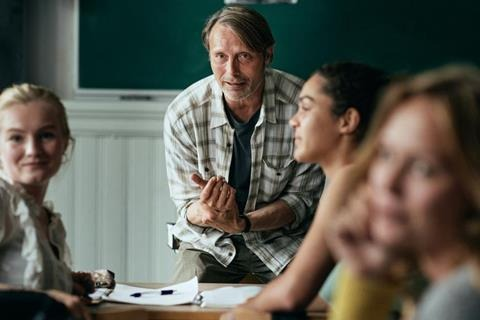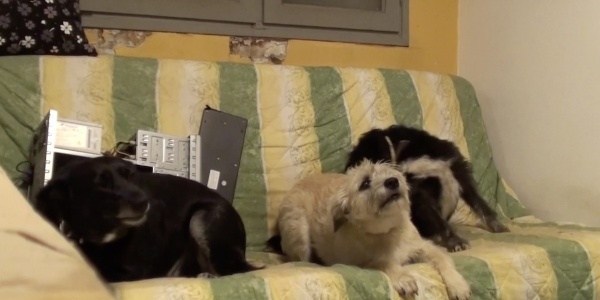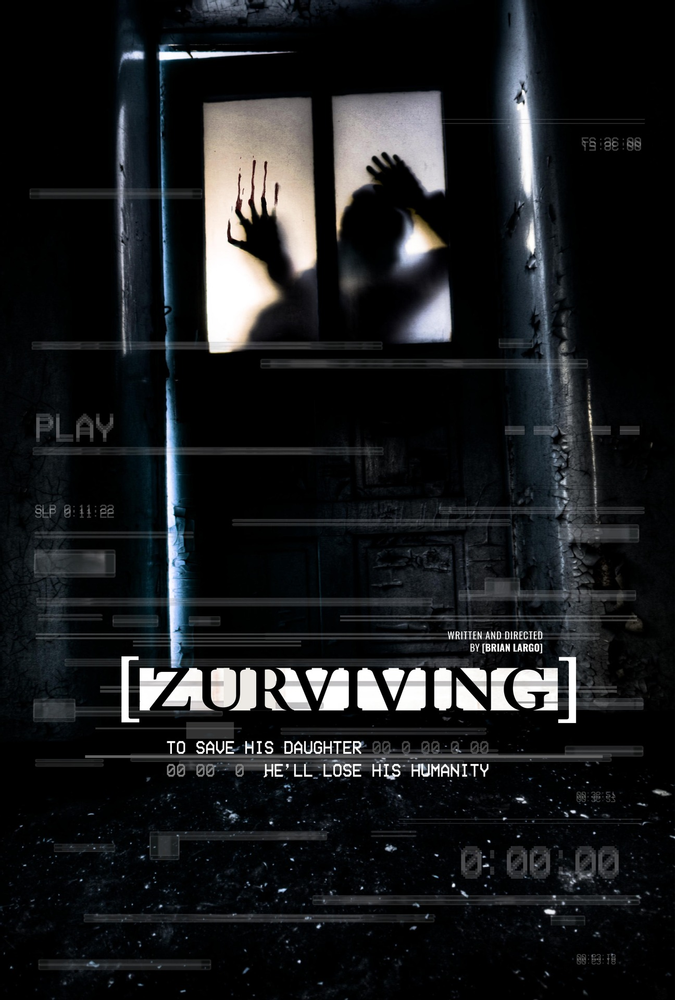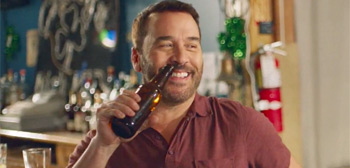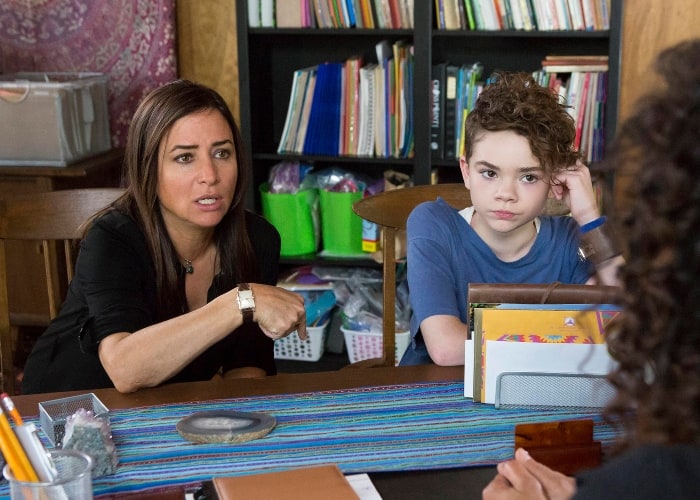International Film Festival Rotterdam 2021: Interview With Director/Writer Dea Kulumbegashvili Of BEGINNING
Dea Kulumbegashvili‘s feature film debut, Beginning, is a technically sound and emotionally harrowing experience that is sure to envelop audiences from its very first frame. This striking debut certainly doesn’t feel like the product of a first-time filmmaker, and has rightfully been accumulating praise during its initial festival run. Kulumbegashvili spoke with Film Inquiry about Beginning at the 2021 edition of the International Film Festival Rotterdam.
Wilson Kwong for Film Inquiry: Given that Beginning has been shown at a few different film festivals now – starting with getting accepted to Cannes, then premiering in Toronto – can you talk about how that experience has been?
Dea Kulumbegashvili: It’s a very strange experience because I’m mostly in my apartment in Tbilisi. It doesn’t feel like I fully made a film, and I’m doing interviews, but it’s strange because I don’t have the physical experience of encountering the audience. In the beginning, it felt more real because I could go up to San Sebastian and then also to this event in Cannes. But now, I’m almost asking myself, “Did we finish the film, how real is it?”
I know you’ve talked about the origin of Beginning in your other interviews, and I think it’s so interesting that the film starts off by examining religious extremism, but goes on to explore so many other things. What was the actual starting point of the film during the writing process?
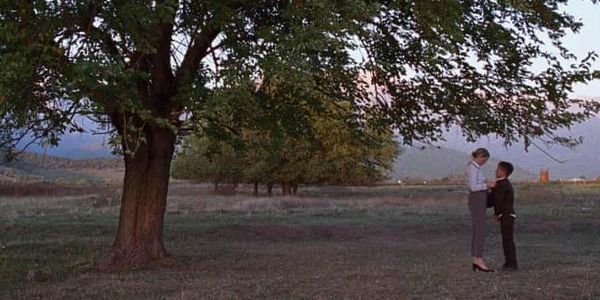
Dea Kulumbegashvili: I think the starting point was when I left Georgia to study abroad. When you look at the place where you grew up from a distance, you start to see things differently. And I started to see how complex it actually is to live in Georgia. I was even questioning what it means to be Georgian in a way, because I grew up with so much tension during the civil war. And I’m not sure if we were really able to process the trauma of the civil war. Especially my generation, we have this responsibility to process what really happened in our childhood, so I was questioning my own sense of alienation. Because I came back to Georgia in 2014, and I was visiting my father in this small place where he used to live. I had this feeling of not knowing if I still belonged to that place, or what it meant to belong.
And then I encountered people in our family who became Jehovah’s witnesses, and I was somehow emotionally driven to communicate with them because I could see that they were going through the same experience, even though they never left. They were all there because of their choice of religion and what they believed in. On the other hand, because I grew up in a family with many women, I was used to being in a world of women. And in Georgia, specifically, it’s very separate from the world of men. So they always made jokes that I somehow grew up in kitchens. It’s a sad thing to say, but I remember that we would have huge gatherings with relatives, and all the girls would end up with the adult women. They would have their separate place where they could really talk, and so it was this strange experience. On the one hand, it was a really warm place for me. But on the other hand, I listened and I heard a lot.
And have some of your relatives or people you grew up with seen the film yet? Has it resonated with them in a different way?
Dea Kulumbegashvili: Well, my mother for example, she plays the mother in the film, and she’s not an actress. It’s the first time she’s acting in a film, and she actually told me she was crying when she first read the script. It was very emotional for her to read it. And I actually asked for her permission to allow me to put on screen my own emotional experiences. It’s very difficult to talk about these things because we all love our families, and I really love my father. From a children’s point of view, it’s very different. And I think for my mother, it was a different life, and maybe not as cheerful as I thought. I started to understand more of what her position was in society, and it’s a difficult thing to talk about because it’s very personal.
And were you ever concerned about how Jehovah’s Witnesses were portrayed in the film? I know that Beginning isn’t necessarily critical of the religion, but it does comment on it, and this can often be a sensitive topic.
Dea Kulumbegashvili: I was concerned and I knew that I had a responsibility because this is a minority group and they go through a lot of hardship in Georgia, which is mostly Eastern Orthodox Christian. And the dominant religion here is not very tolerant towards anyone else. What’s conveyed in the film was very truthful, and I did not want to accuse anyone of anything or point fingers. I just wanted to really look at people and how they behaved in certain situations, and what the dynamic of power is in the community. It’s an oppressed community, but where is the place for a woman within the community? And I understand that it comes down to personal choices, and those choices were what I was interested in exploring.
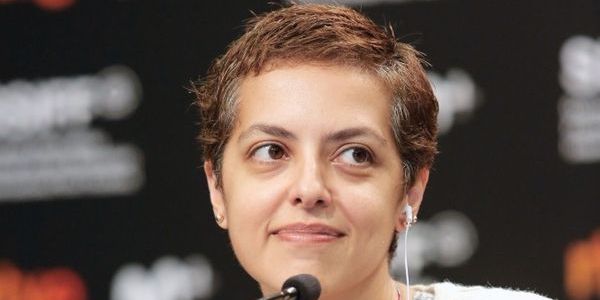
There’s definitely a very honest lens to it. Before we talk about the technical aspects of the film, can you talk about the rural setting of the film, specifically for audiences (like me) who might not know Georgia very well? Was there any social significance to the location of the film?
Dea Kulumbegashvili: That was the place I lived till I was 17. It’s where I grew up and my family still lives there, and we didn’t have a separation between middle school and high school. It’s just one school until we’re 17, and I had classmates who were Jehovah’s witnesses back then. Now, there’s even a bigger community and the relationship is complex, with a lot of friction within the community. Even though it wasn’t easy, and I knew that even my own family would need to face uncomfortable questions, I spoke with them and asked if they would accept my making a film there. I didn’t want to put anyone in a position when they needed to be responsible for my choices. But in the end, I’m a separate person, and that’s actually what my family told me. They supported me, and I’m endlessly grateful to them. But the significance is that first of all, everything is true. And second of all, I grew up there and really knees these people who are in the film.
There are also so many long takes in the film, which is all so well done. What was the thinking behind having all these long takes, and framing the film like this?
Dea Kulumbegashvili: I think as a filmmaker, working with a medium which has so much to offer, there is so much to explore. For example, I work mostly with natural light and I almost consciously refuse to form any kind of beauty, unless it’s really there. If it’s really there, then I film it, but I don’t try to do anything for the shot intentionally. And because I’m a contemporary human and I’m surrounded with audiovisual material every day, I am myself challenged in a way to actually take in everything. And I wanted to really capture how this woman lives and how time flows for her, and maybe even to challenge the audience. I understand that we have different expectations for how stories should be told, but this is how people live. And that was the starting point for me. I really wanted to grasp the essence of the world of this woman, with its time almost constantly being locked in the frame, not moving, to almost a perfection of some sense. But then when the camera moves, it has a different effect and I’m really interested in general to explore what even one move of the camera really does to a scene.
With these long takes, there are a couple of scenes in the film that seemed like they might’ve been very difficult to shoot, particularly from a performer’s standpoint.
Dea Kulumbegashvili: I was working with really incredible actors, especially Ia Sukhitashvili who plays Yana in the film. She’s a great actress with incredibly diverse experience. And there are only three professional actors in the film, with the rest of the people being from this place. So I knew that I needed actors who could work with that pre-rehearsed material, but at the same time, allow for unexpected things to happen as well. We rehearsed for six months before we started to shoot because I really wanted the actors to really fully inhabit the character. And then on set, I knew that if she did something differently, it would be organic to the character. I wanted something to happen that would come from the character and not just from rehearsals.
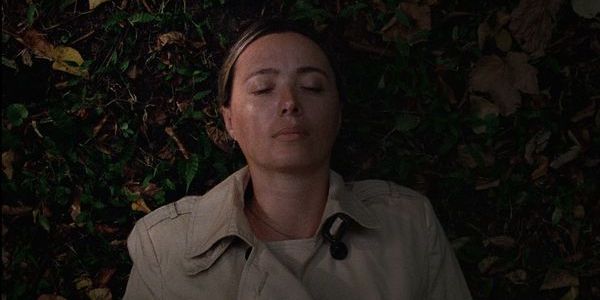
Were certain shots more challenging to shoot than others?
Dea Kulumbegashvili: The most difficult things are the easiest to do on set somehow. For example, the first shot of the film was done in one take. Then the sexual assault scene, we only did two takes. The first take is in the film, and the second one with did for safety, just to be sure that we had it. But the moment you think that something is easy, that’s when you have a problem. For me, some of the shots I had to shoot three times. For example, in the police department, when she knocked on the door, I shot it three times. And it’s almost ridiculous because it’s the simplest thing in the film!
The film’s sound design was also very striking, and really had a sense of authenticity to it. Whether it’s the fire at the beginning of the film, or even the general sounds of the river later on. Did a lot of the sound come from natural recordings, or were they mixed together afterward?
Dea Kulumbegashvili: Unfortunately, not that much of it was natural, and that was a huge failure on my part. But now I have so many ideas on how I want to work on the next film, because a lot of sound was damaged and we could not use it. We just reconstructed it entirely, so I worked on the sound for a very long time actually. I started in Mexico, then I came to Georgia and then I went to Paris, so it was maybe four months that I was working on the sound.
These days, I’m always interested in whether filmmakers like yourself have changed their thoughts on what their next project might be with COVID-19 happening. Has all the isolation and change in perspectives that have arisen during the pandemic sparked any creative inspiration for you?
Dea Kulumbegashvili: In a strange way, this film is about isolation for me. She’s isolated and somehow I was always thinking that it’s not natural for a human to be isolated, because that’s when almost all extremes of human nature somehow start to emerge or manifest itself. Maybe because I’m in isolation, the script that I was writing for my next film, which I thought would again be about aloneness, is not. Now it’s about somehow grasping for emotion or doing something and to really want to participate in life. So it somehow became the opposite of what I was writing before.
Film Inquiry would like to thank Dea Kulumbegashvilli for taking the time to speak with us!
Does content like this matter to you?
Become a Member and support film journalism. Unlock access to all of Film Inquiry`s great articles. Join a community of like-minded readers who are passionate about cinema – get access to our private members Network, give back to independent filmmakers, and more.
Join now!
